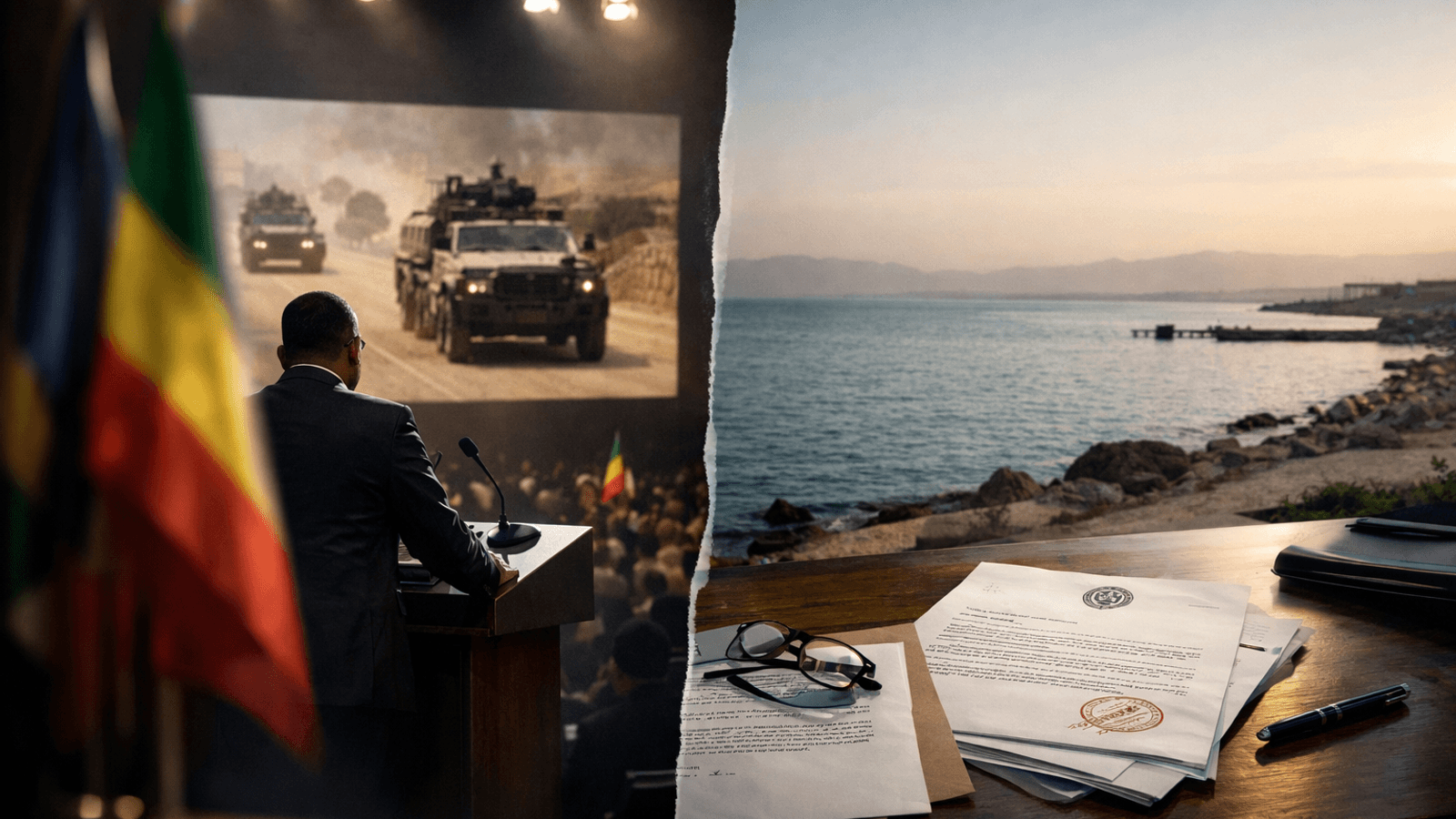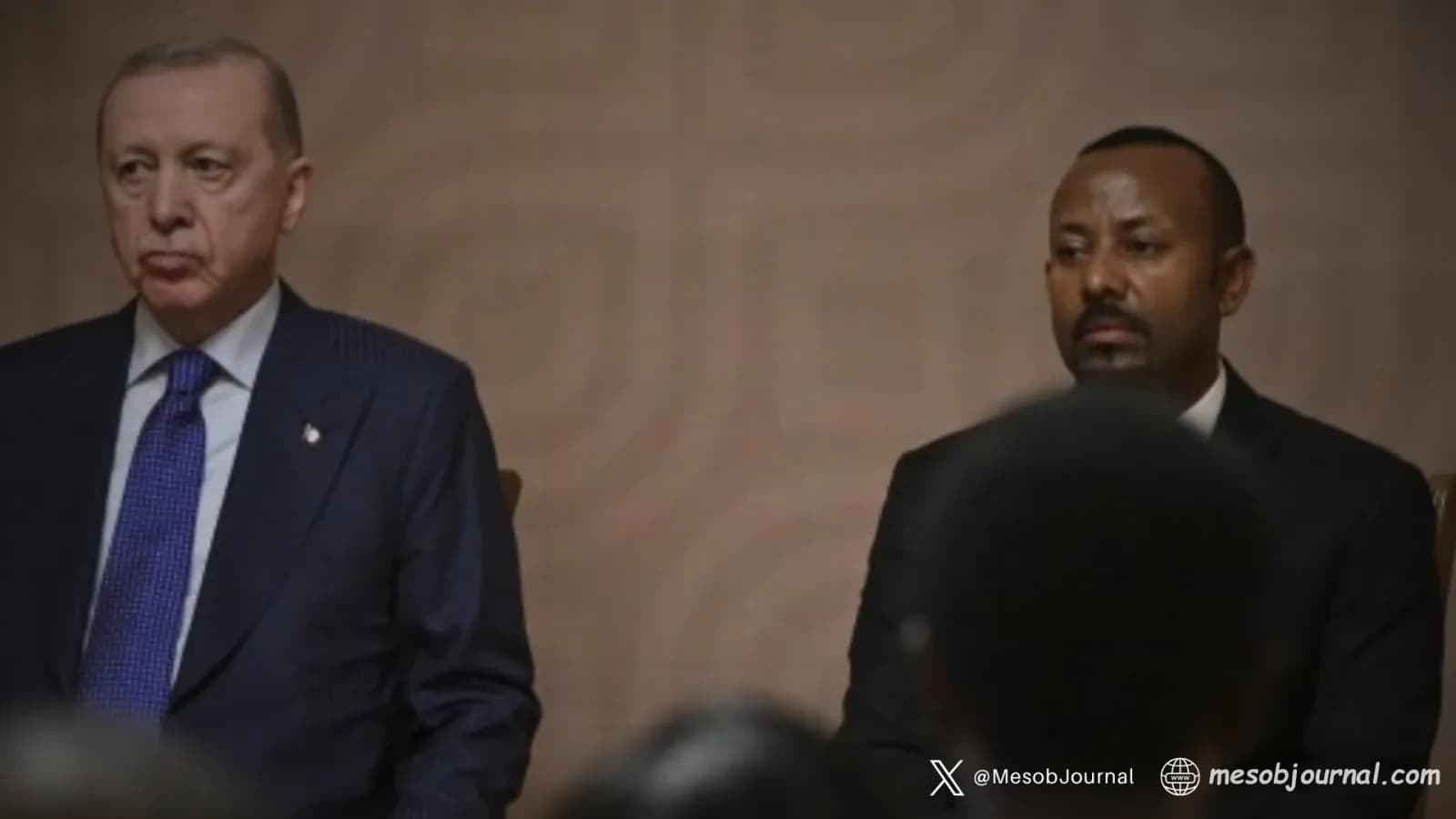Egypt and Ethiopia Clash at UN General Assembly Over Nile Dam (GERD), Regional Stability

The United Nations General Assembly’s 80th session saw a fierce exchange of words between Egypt and Ethiopia over the Grand Ethiopian Renaissance Dam (GERD) and wider regional disputes, with Cairo delivering a scathing rebuttal that left Addis Ababa’s delegation on the defensive.
The heated back-and-forth, conducted under the “right of reply” mechanism, underscored how the dam — inaugurated earlier this month in Ethiopia — has become more than a water dispute. It is now a prism through which broader questions of sovereignty, law, and regional stability are contested.
Ethiopia’s Defense: Development Framed as Justice
Ethiopia opened its interventions by portraying the GERD as a “principled” development project rooted in equitable water use and human rights. Addis Ababa’s representative said the dam was built through domestic sacrifices — citizens contributing from their savings — and argued that Egypt seeks to “deny Ethiopians electricity, food, and clean water” under the guise of colonial-era treaties.
“Ethiopia abides by the principle of equitable and reasonable utilization,” the delegate stated, accusing Egypt of clinging to “colonial entitlements” and monopolizing the Nile. Addis Ababa also claimed it had consulted Egypt and Sudan during the project’s design and filling, contrasting the Aswan High Dam’s impact on Nubian and neighboring communities with the GERD’s stated cooperative intent.
Egypt’s Counter: Turning the Mirror Back
Egypt’s reply was sharper, broader, and unmistakably political. Cairo dismissed the dam as a “unilateral measure devoid of any legal legitimacy,” citing violations of international law and Security Council statements.
But the Egyptian delegation did not stop at the water issue. It turned the floor into an indictment of Ethiopia’s regional conduct:
- Somalia: Signing an MoU that “threatens the unity and sovereignty” of Somalia by recognizing secessionist claims.
- Sudan: Repeated border attacks and illicit resource exploitation in the contested al-Fashaga region.
- Eritrea: Waging war and maintaining threats over access to the Red Sea.
- Peacekeeping: Having its forces removed from UNISFA operations.
- Somalia (again): Deploying troops outside the AU framework.
“This is Ethiopia, not Egypt,” the Egyptian delegate repeated, turning Ethiopia’s accusations back onto its own record. Cairo argued that Addis Ababa’s rhetoric stemmed from “a troubled internal situation” and attempts to manufacture enemies for domestic consumption.
The Second Round: Escalation, But Little New Ground
In their second interventions, Ethiopia doubled down, hailing the GERD’s completion as “a symbol of resilience” and accusing Egypt of blocking every negotiation “in bad faith.” Addis Ababa insisted that “the days of hegemony and colonial agreements are over” and that its cause enjoys continental support.
Egypt, in turn, reaffirmed its categorical rejection of Ethiopia’s unilateralism. “This is not due to an inability to defend our existential interests,” Cairo stressed, “but out of conviction in diplomacy and cooperation.” Egypt left open — but did not detail — “all necessary means” under international law to protect its downstream rights.
A Debate Egypt Scored on Points
While Ethiopia sought to frame its case around development justice and anti-colonial language, its responses relied heavily on moral appeals and generalities. Egypt, by contrast, combined legal argumentation with a pointed political takedown of Ethiopia’s wider regional behavior — from Somalia to Eritrea to Sudan.
The contrast was stark: Ethiopia presented itself as a victim of historical injustice, but Egypt painted Addis Ababa as a serial destabilizer — threatening borders, exploiting conflicts, and weaponizing the Nile.
For many observers, Cairo’s framing carried more weight in the chamber. By linking the GERD dispute to Ethiopia’s wider record of regional interventions, Egypt shifted the debate from a narrow water-sharing argument into a question of credibility and lawfulness.
The Takeaway
The UNGA exchange showed that the GERD is no longer just about electricity or irrigation. It has become the focal point of competing narratives about sovereignty, regional stability, and Africa’s future.
Egypt left New York with the stronger case — firm, detailed, and outward-looking. Ethiopia left with familiar arguments, but increasingly isolated, its appeals blunted by the shadow of its own destabilizing record in the Horn of Africa.
Related stories

The “Powder Keg” Script: Crisis Group’s Eritrea Bias
International Crisis Group’s 18 February 2026 briefing advertises itself as conflict prevention. In reality, it performs something closer to narrative management: it repackages Ethiopia’s Red Sea ambition as a “grievance” to be accommodated, while keeping Eritrea boxed into the f

Ethiopia: Abiy's War Script and the Media’s False Balance on Eritrea
The lazy framing is already being warmed up: “tensions are rising,” “neighbours trade claims,” “both sides must de-escalate.” It sounds responsible. It reads balanced. And it quietly deletes the one fact that matters: one side has spent years normalising war talk as policy. If y

Erdogan in Addis: sovereignty first as Abiy beats sea-access drum
Abiy Ahmed tried to stage the usual Addis photo-op when Turkey’s President Recep Tayyip Erdoğan arrived. But the camera caught something different: a stiff, guarded prime minister sitting beside a visitor who didn’t look like he came for flattery. What played out at the joint app

Fenkil’s Dawn: The Martyrs Who Made Eritrea Unbowed
Some victories are celebrated once. Others are lived—every day—like a vow you can’t afford to break. At Twalet, the Tanks Don’t Rust In Massawa, the Red Sea air has a way of softening everything—except memory. You can feel it near Twalet, where three tanks stand fixed as a monume

